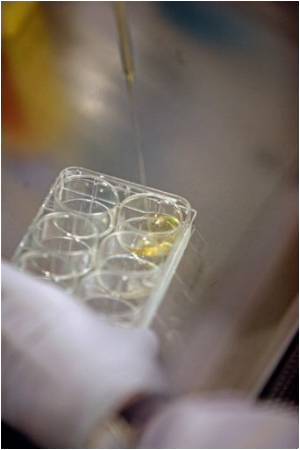
The test has so far proven to be twice as precise as the current method. It focuses on urine rather than blood, meaning it is cheaper and also has the advantage of dispensing with needles.
The 5.50 pounds kit could be in widespread use in GPs' surgeries in as little as four years.
"This is a vital piece of research that could go a long way to find a long-awaited and much-needed reliable and easy test to identify those men most at risk of developing prostate cancer. If further studies show this can be used in the clinic, this will be a landmark discovery," the Daily Mail quoted David Neal of the Cambridge Research Institute as saying.
In developing the new test, scientists from the Cancer Research UK Cambridge Research Institute and the Institute of Cancer Research used results of genetic studies to link low levels of the microseminoprotein-beta protein (MSMB) with signs of the disease.
Researcher Hayley Whitaker said that initial studies suggest that the test is twice as accurate as the current one.
Advertisement
Men found to have low levels of MSMB could then be closely monitored, with the aim of detecting the disease, if it does indeed develop, as early as possible.
Advertisement
Whitaker, lead of the study said: "We looked in the tissue and urine of over 350 men with and without prostate cancer to find out how much MSMB they had. The protein is easy to detect because it is found in urine and would potentially be a very simple test to carry out on men to identify those most at risk of developing the disease."
Kate Holmes, of the Prostate Cancer Charity, said: "Given the known limitations of the PSA blood test, finding a technique to accurately diagnose prostate cancer is the holy grail of research into the disease, which is why these results are potentially exciting.
"However, further research is needed to determine how effective the detection of MSMB in the urine is for predicting the risk of, and potentially even diagnosing, prostate cancer."
Source-ANI


![Prostate Specific Antigen [PSA] & Prostate Cancer Diagnosis Prostate Specific Antigen [PSA] & Prostate Cancer Diagnosis](https://www.medindia.net/images/common/patientinfo/120_100/prostate-specific-antigen.jpg)







